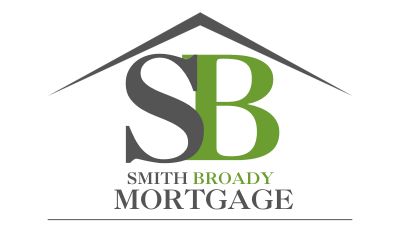Mortgage Terms Explained for you in Jeffersonville, IN
Indiana, Kentucky and Florida’s #1 Source For Your Mortgage Needs
The process of buying a home can be confusing and a bit overwhelming. We’ve complied a list of the most common terms used throughout the mortgage process, so you’ll start to understand the lingo and feel comfortable and confident … not confused and anxious.
Important Terms To Know
Frequently Used Mortgage Terms
An adjustable-rate mortgage (ARM) is a type of loan with an interest rate that varies depending on how market rates move. Your payment rate isn’t guaranteed to stay the same for the length of your loan.
Home loan amortization is the process of how payments spread out over time. Typically this is 360 months or 30 years.
Annual percentage rate (APR) is the interest rate you’ll pay on your loan annually plus any additional lender fees.
An appraisal is a rough estimate of how much your home is worth. The investor will not let you borrower more than the home is worth.
Anything that you own that has a cash value. Checking/savings accounts, retirement accounts, CD’s, stocks, bond, mutual funds and so on.
Type of financing that requires a lump sum to be paid at some point in the mortgage term – most commonly, at the end.
Your loan is 100% approved. Documents are ready to be signed and keys exchanged! Congratulations!
Settlement costs and fees you pay to your lender in exchange for finalizing your loan. Some common closing costs include appraisal fees, loan origination fees and pest inspection fees.
The final terms of your loan, which includes your interest rate, loan principal and the closing costs you must pay. Legally required to give you at least 3 days before you sign on your loan.
The loan has been “approved”, but there are conditions (items) that must be met to get to closing.
Total fixed, recurring monthly debts divided by your total monthly gross household income. DTI is reviewed when applying for a loan, as we need to make sure there is enough money coming in to make payments.
A deed is the physical document you receive that proves you own your home. You’ll receive your deed when you close on your loan.
Optional closing cost you can pay to “buy” a lower interest rate. One discount point is equal to 1% of your loan amount. The more discount points you buy, the lower your interest rate will be. These can be paid by you, via a gift or via a seller concession. Yes … the sellers can gift you money!
The money put down to buy a home. There are loans with down payment assistance, so no money down is needed. USDA & VA loans are 0% down. A first time home buyer loan can require as little as 3% down.
A check written to the seller (typically 1 to 3% of the home’s value), as this shows them that you are serious about buying their home.
You’ll have the same interest rate throughout the term of the loan. For example, if you buy a home at 6.5% on a 30-year fixed-rate loan, then you’ll pay 6.5% interest every month for your entire 30-year term.
A home inspection is different from a home appraisal. An inspection tells you about specific problems in the home. An inspector will walk around the home you want to buy and test things like the heating and cooling system, light switches and appliances. They will then give you a list of everything that needs to be repaired or replaced in the home.
Homeowners insurance is a type of protection that compensates you if your home gets damaged during a covered incident. Common damages that are covered include fires, burglaries and windstorms. In exchange for coverage, you pay your insurance provider a monthly premium.
A letter written and signed by you to clarify an item on your loan file for the investor.
The length of your loan. Typically 15 or 30 years, which are written as 180 months or 360 months.
Document that tells you how much you can afford to take out in a home loan. Preapproval is thought of as the first step in getting a mortgage. When you apply for a preapproval, you will be asked about your credit score, income, assets and other financial information. Those details will be used to determine how much you qualify for in a home.
Your principal balance is the amount that you take out in a loan. For example, if you buy a home with a $150,000 loan from your lender, your principal balance is $150,000. Your principal balance shrinks as you make payments on your loan over time.
Private mortgage insurance (PMI) is a type of insurance that protects your lender in the event that you default on your loan. Your lender will usually require you to pay PMI if you have less than a 20% down payment. You have the option to remove PMI from your loan when you reach 20% equity in your property.
You’ll be required to pay property taxes to your local government. The amount you pay in property taxes depends on your home’s value and where you live. Property taxes fund public needs & infrastructure.
A real estate agent is a local property professional who can help you shop for a home more effectively. As the first step in the home buying process. Real estate agents can show you homes in your price range, draw up offer letters and work with sellers to get you a great deal on a home.
Refinancing happens on an existing mortgage. Essentially, you trade the original debt obligation in for a new one. Refinancing is beneficial for borrowers to create a more convenient payment schedule, a lower interest rate or a different term.
Seller concessions are clauses in your offer that ask the seller to pay certain closing costs. For example, you might ask the seller to cover elements like appraisal fees or your title search. The seller can reject your concessions or send you a counteroffer with concessions removed. Limitations on the percentage of your closing costs sellers can cover varies by property type.
A title is proof that you own a home. Your title includes a physical description of your property, the names of anyone who owns the property and any liens on the home. When someone says that they’re “on the title” of a home, it means that they have some kind of legal ownership of the property. For example, if your parents helped you purchase a home, they’d likely be listed on the title.
Title insurance is a common closing cost. You buy title insurance to protect yourself against outside claims to your property. Unlike other types of insurance, you don’t need to pay for title insurance every month. Instead, you make a single payment at closing that protects you for as long as you own the home.
Verifying hourly/salary wages and the breakdown of regular hours and overtime hours as needed.


